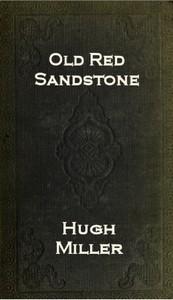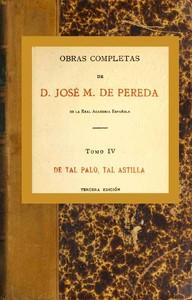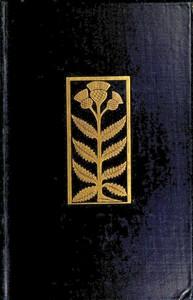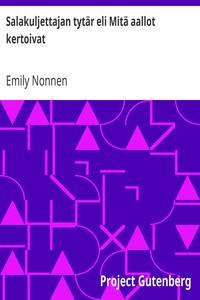Read this ebook for free! No credit card needed, absolutely nothing to pay.
Words: 17665 in 4 pages
This is an ebook sharing website. You can read the uploaded ebooks for free here. No credit cards needed, nothing to pay. If you want to own a digital copy of the ebook, or want to read offline with your favorite ebook-reader, then you can choose to buy and download the ebook.


: The storm of London: a social rhapsody by Blaze De Bury Fernande - Science fiction; London (England) Fiction
Peter Biddulph, by W.H.G. Kingston.
Peter's mother and father were barge people on the London river, the Thames. But the father dies, and Peter and his mother are destitute. She goes out to do cleaning etcetera, and Peter scavenges by the river-side. The boys who did this used to be called mudlarks. Peter's mother dies. One day a man called Mr Wells and his friends come by in a boat, and cast money for the mudlarks to dive for. Unfortunately Wells loses his valuable gold ring in doing this. He leaves his card with Peter, who finds the ring, and returns it.
Struck with this honesty Wells gives the orphan and destitute boy a home. Wells is a shipowner, and when Peter is fourteen he is given an apprenticeship on one of his ships. Peter makes his way up till he is a senior officer, but marries a girl in London, whose father owns one small vessel, and when he is dying he makes the vessel and the goodwill over to Peter. Wells's business fails, and with it go Peter's savings.
Peter and his wife and children have a sea-going life, but eventually decide to settle in Australia. Arriving there they found it hard to avoid the escaped convicts who are roaming the land and giving everybody a hard time.
All these situations are well written, and you will enjoy the book.
PETER BIDDULPH, BY W.H.G. KINGSTON.
THE SETTLER'S EARLY DAYS.
From my earliest days to the present time I have been gradually climbing up the ladder towards a comfortable berth on the top; and if a ratlin has given way beneath my feet, I always have had a firm hold above my head. The first step I took was off the mud on to dry ground. I can recollect nothing clearly before that time. I was born on board a river barge, and never left it, winter nor summer, till I was fully six years old. One day the barge took the mud, which is not surprising, considering that I was the only person on deck. I ran to the helm to turn her head off the shore, but it was too late--there she stuck hard and fast. My mother was below, tending my father, and he lay dying. It was the barge's last voyage, and his too. Both had seen much service. The barge never moved again, but went on rotting and rotting till the owner sold her and she was broken up.
Father died that night, and a boat came and took mother and me on shore, with father's body, and such property as we possessed--not much, I fancy,--a kettle and pot, some plates, and knives, and cups, and a few clothes,--we hadn't wanted furniture, and with these mother and I had to begin the world. She said things might have been worse, for she might have had a dozen children instead of one, and debts to pay--and she didn't owe a farthing, which was a great comfort in her affliction.
My mother was indeed, while she lived, a very good mother to me, for she taught me to distinguish right from wrong, to love the former and to hate the latter. As may be supposed, she was very poor, and I was often without a meal. I know, too, that she frequently stinted herself to give me food. She lived on the banks of the Thames somewhere below London, and I very soon found my way down to the mud, where I now and then used to pick up odds and ends, bits of iron and copper, and sometimes even coin, and chips of wood. The first my mother used to sell, and I often got enough in the week to buy us a hearty meal; the last served to boil our kettle when we had any food to cook in it. Few rich people know how the poor live; our way was a strange one. My poor mother used to work with her needle, and go out as a charwoman, and to wash, when she could get any one to wash for, but that was seldom; and toil as hard as she might, a difficult matter she had to pay the rent of the little room in which we lived. She felt sorely the struggle she had to endure with poverty, for she had seen better days--far better, I suspect,--and was not accustomed to it. She was, I have reason to believe, well educated--at all events, much above most persons in the station in life she then occupied; and, young as I was, she taught me to read, and to repeat poetry, and to sing psalms; and though I forget nearly all the events of my life at that time, I remember many of the verses she taught me; they have been a wonderful comfort to me through life. My mother had married unwisely, I have no doubt, and if she ever had any relations, they discarded her; so she was very soon reduced to the condition I have described, aided by an illness which at length terminated in her death.
I was about eight years old when I became an orphan; but my intellects were sharpened by exercise, and I was as precocious as many children double my age. As I was able to do something to gain my own livelihood, the people of the house where we lodged took compassion on me, and, instead of sending me to the workhouse, gave me the corner of a garret to sleep in. I understood the compact, and worked harder than ever.
Young as I was I felt my mother's loss most bitterly. We had been all in all to each other, and I should have broken down altogether with grief, had not my kind host roused me up and advised me to go out and try and do something to gain my livelihood. Hunger is a severe taskmaster; it makes many an idle man work.
Free books android app tbrJar TBR JAR Read Free books online gutenberg
More posts by @FreeBooks

: The Old Red Sandstone; or New Walks in an Old Field by Miller Hugh - Geology Scotland; Geology Stratigraphic Devonian








